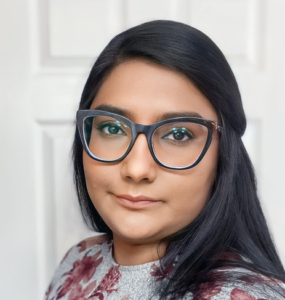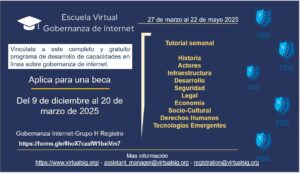Why I’m making Internet Governance central to my work, and why you should too.
Why I’m making Internet Governance central to my work, and why you should too.
Author Matthew Cowen
The internet as we know it is under attack. It is under attack on several fronts, including, most notably, attacks on its openness from various countries out of fear. Governments of many nations are implementing regulations and imposing operating rules on the Internet’s infrastructure or imposing rules to ensure the Internet fits into their particular point of view. For many years, China has been implementing and enhancing its “Great Firewall of China” with some success . The United States of America is in the process of trying to ban TikTok over its alleged proximity to the Chinese regime. It has also, like the United Kingdom, implemented rules to decommission any telecommunications equipment from companies like Huawei and ZTE from being deployed in their respective territories, again from alleged state security fears. Any time there is unrest in some countries, like India, Iran, Iraq, or Venezuela, to name only a few, Internet shutdowns occur to stifle communication, organisation and dissent. Even the once liberal governments like the United Kingdom are showing signs of lurching towards the setup and operation of Internet controls that go above and beyond all reason. Some of it is dressed up in the name of being “to save the kids”, but mostly, it is born out of pure fear of lack of control of the unknown.
But whether or not you think these rules, regulations and operational controls are justified or not, you can’t deny that the Internet as we once knew it is in a state of being manipulated and changed, and not necessarily for good. I suspect the outcome will be a worse Internet than the one we have, and I suspect our freedoms will be further eroded in this new Internet. But despite that, why are we at such a critical point in the Internet? I wish I had a simple answer to that question, and to be fair, I’m not sure I know or understand why. And I suspect many of us don’t either. The Internet in ten years will be a different animal from what it is today, in the same way the Internet of ten years ago was a different animal.
The Internet, for many, is Social Media. Closed-off, filtered and algorithmically distilled database views on a set of freely offered and surreptitiously extracted data on something like a third to a half of the world.. Many users content themselves with this watered-down and safe-feeling view of the Internet, not realising or caring that the “real” Internet is out there. We’ve done a fantastic job in scaring people away from the real Internet by talking about the Dark Web and all the bad things that will indeed happen to you if you ever venture into those neighbourhoods, in precisely the same way we’ve ruined the possibility for young people to go out and venture around the surrounding communities for fear of immediate death.
The truth is, as always, somewhere in between and not quite as extreme as portrayed.
As individuals, what can we do about this? How can we be better citizens of the Internet and help others become better citizens of this shared space that promised so much and delivered as much, if not more, good and bad? And how can we participate in making a better Internet for the world and not just for the privileged tech bros that are systematically destroying it while extracting all the wealth from the rest of us?
I’d say that education is at least half the battle. As we become more educated on a topic and more open to understanding, empathy and nuanced discourse follow. I’m an old-timer on the Internet, and I have used it for many years, from the early days when the Internet of the World Wide Web didn’t exist. I saw the birth, use, and mass adoption of many of the systems and protocols we use daily. These are technical elements and something we, as early adopters, were comfortable with without really thinking of the consequences that would eventually and inevitably come with the generalisation of the Internet. Many of us, both young and old,
lacked or lack the necessary understanding of the elements other than the technology to truly understand how the Internet has and is affecting the world. We are still in a global experiment that hasn’t been designed with a hypothesis in mind. The Internet just is.
I recently completed the Virtual School of Internet Governance course and obtained the offered certificate to broaden my understanding and take me out of my comfort zone. This online-only self-paced training course is designed to open your eyes to aspects you might not have previously considered. You might even find yourself questioning your own knowledge and beliefs, as I did in some topic areas. What you absolutely will do, though, is learn and have access to an absolute ton of information about the origins, the mechanisms, the politics, the social and legal aspects and many other areas that you might not have thought are linked to the Internet. As a free course, the quality and quantity of information is staggering and staggeringly good. You get to meet and debate with experts in the topics covered, and should you wish to go further, the contacts and exchanges made over the course of the ten weeks will help you develop in the Internet Governance space.
I have made Internet Governance a central part of my work, and it was an excellent follow-up from the ARIN Fellowship.
If we want a better Internet, we owe it to each other to invest in its governance and development.
With gratitude to Glenn McKnight and Alfredo Calderon.



